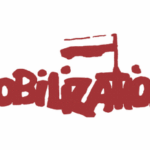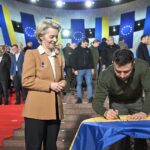The statement condemns Israeli’s violations of human rights and international law and calls for refusing collaborations with Israeli universities involved directly or indirectly in those violations

Motion passed by the Academic Senate on 22 July 2025
The Academic Senate of the Scuola Normale Superiore notes with sorrow and concern the humanitarian catastrophe and the continuing deterioration of the conditions of the Palestinian people, observing the worsening of severe and systematic forms of oppression, discrimination and violation of international humanitarian law against the civilian population in the Gaza Strip and the West Bank, as well as the near total destruction of the health, school and university infrastructures in the Gaza Strip.
In view of these serious and systematic violations of international law, as well as the continued detention of hostages since 7 October 2023, the academic community of the Normale has already expressed and reiterates today its clear, firm and unanimous condemnation.
In light of the exceptional nature of the current situation, the Academic Senate considers it essential to reiterate the content of its resolution of 26 March 2024, recalling the need for its research and teaching activities to respect Article 11 of the Constitution of the Italian Republic, which repudiates war as an instrument of aggression against the freedom of other peoples and as a means of resolving international disputes, and Article 1 of its own Statute, which commits the Normale to work in the service of humanity, contributing to justice, peace and the protection of human rights.
In accordance with the above resolution, the Normale undertook to evaluate with the utmost attention and caution any institutional agreement and proposal for scientific collaboration that could relate to the development of dual use technologies liable to be used for military purposes and to the implementation of forms of oppression, discrimination or aggression against the civilian population, as continues to happen on a daily basis in the Gaza Strip and the West Bank. Over the last few months, it has therefore established the ‘Academic Panel on Research Security and Integrity (PASIR)’ and created a pro-rectorship for ‘Transfer, enhancement and responsible use of knowledge’, and has also begun a collaboration with the University of Genoa’s ‘Strategic Centre for Security, Risk and Vulnerability (SRV)’ in order to obtain an overview of the issue and to organise training courses for all staff with responsibilities in research support, teaching, internationalisation, open science, IT security and ICT.
Given that the Scuola Normale has no current cooperation agreements in place with Israeli research bodies or universities, the Academic Senate today commits the School to:
– intensifying its participation in the initiatives of the ‘Network of Italian Universities for Peace’, both by promoting tangible acts of solidarity towards researchers in areas affected by conflict within the ‘Scholars At Risk’ programme, and through its own scientific initiatives;
– not entering into institutional cooperation or collaboration agreements with Israeli institutions, universities and research bodies which, upon close examination, appear directly or indirectly to be involved in violence and occupation, to the detriment of the civilian populations of Gaza and the West Bank. This commitment will remain valid until the end of the humanitarian crisis, the definitive ceasefire and concrete commitments to the reconstruction of Gaza, and until respect is restored for human rights in Palestine and international law, starting with the implementation of UN Security Council Resolutions 181, 194, 242 and subsequent resolutions;
– encouraging individual cooperation with Israeli academics and non-governmental organisations dedicated to the defence of human rights, which remain excluded from the above assessment, in the belief that transnational dialogue can help to curb all forms of nationalism and racism and promote peace and humanitarian values;
– strengthening and consolidating the evaluation and monitoring activities of the ‘Academic Panel on Research Security and Integrity’ in order to ensure compliance with the principles set out above and to continue internal training courses for the entire community.
The Academic Senate expresses its full solidarity and support for the Palestinian university community, condemning the systematic destruction of the educational and academic system, and committing itself to intensifying the aid and cooperation programmes already underway and to seeking additional funding to welcome Palestinian scholars and students to the Normale.
The Academic Senate expresses its solidarity and support for all the members of the Israeli university community who denounce the humanitarian emergency and violations of fundamental rights in Palestine; it also pledges its full willingness to welcome Israeli scholars and students who oppose the occupation and expulsion, the ongoing war and any doctrine that legitimises them, and who are often themselves victims of punitive measures.
Finally, the Academic Senate calls on the Italian government and European institutions to take a clear and unequivocal position against violations of international law, to demand an immediate ceasefire, and work actively for the protection of the civilian population and the recognition of the Palestinian state, while expressing deep reservations about the appropriateness, in the current context, of the MAECI call for Italy-Israel collaboration and participation in it.
The Academic Senate orders the publication of the text of the motion on the Normale’s website and its dissemination through its other media channels. It mandates the Director to act as spokesperson, and to present the positions expressed in this motion, in particular to MUR, MAECI and CRUI, urging, in all institutional forums, the pressing need to defend the values and ethical principles to which universities and research must adhere.
28/10/2025

14/10/2025

Journal Article - 2025
Journal Article - 2023
Journal Article - 2023
Journal Article - 2023
Journal Article - 2023
Monograph - 2023
Monograph - 2022
Monograph - 2022
Journal Article - 2021
Journal Article - 2021